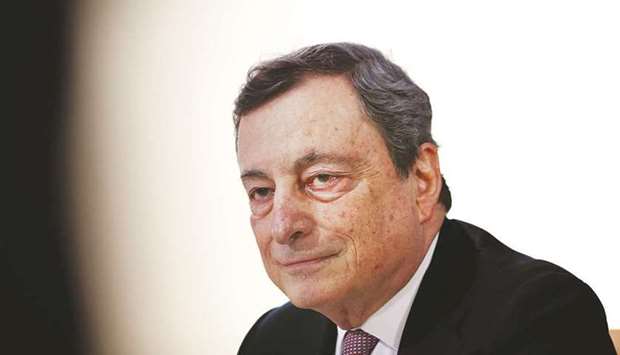The Italian head of state has rejected the resignation of Prime Minister Mario Draghi and asked him to address parliament to get a clear picture of the political situation, a statement from President Sergio Mattarella’s office said.
Draghi had announced his plan to resign yesterday after the 5-Star Movement (M5S), a coalition party, declined to back him in a confidence vote over his plan to combat soaring prices.
He said the “pact of trust” on which the government was based had been broken, and the conditions to carry on were “no longer there”.
The former European Central Bank (ECB) president, 74, said he had made “every effort” to “meet the demands that have been put to me”, but the vote showed “this effort was not enough”.
“The national unity coalition that backed this government no longer exists,” said Draghi, who has been prime minister of a broad coalition since February 2021.
It was not clear how Draghi would respond to the intervention of Mattarella, the supreme arbiter in Italian politics.
The confidence vote had become a focal point for tensions within Draghi’s government as its parties prepare to fight each other in a national election due by early 2023.
The M5S had wanted Draghi to do more to help families to cope with rising inflation in part caused by the war in Ukraine, even if it meant a steeper hike in government borrowing.
The decision by the M5S to boycott the confidence vote triggered the sequence of events that prompted Draghi to say that he would quit.
The M5S, headed by former premier Giuseppe Conte, has been haemorrhaging parliamentarians and support in the polls over policy U-turns and internal divisions.
It sat out yesterday’s confidence vote in a move described by experts as a tactical attempt to win back grassroots backing ahead of the scheduled 2023 general election.
The confidence vote was called on an aid package worth about €23bn ($23bn), designed to combat rampant inflation.
However, it also included a provision to allow a garbage incinerator to be built in Rome – something the M5S has long opposed.
The M5S said it could not stomach voting for the incinerator, but still supported Draghi.
The crisis could still end with Italians heading to the ballot boxes later this year.
The far-right has seized on the tensions, with both the anti-immigrant League – part of Draghi’s coalition – and the opposition Brothers of Italy party saying new elections should be called.
However, Draghi could equally find himself back at the head of the exact same coalition, as the M5S has little interest in early elections that could see it perform poorly.
Draghi had said he would not want to lead a government without the M5S, which emerged as the largest party in the previous election in 2018 but has since suffered defections and a loss of public support.
Mattarella can try to persuade Draghi to form another government, find a new caretaker leader to take Italy to an election next year, or call an early election.
Italy has not had an autumn election since World War II as that is normally when the budget is drawn up and approved by parliament.

(File photo) Italian Prime Minister Mario Draghi
